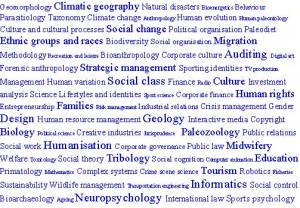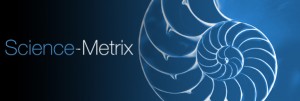We have received the following invitation to join the Database of Gender Experts for European Research and Innovation.
Dr. Ineke Klinge, Chair H2020 Advisory Group on Gender, invites GenPORT members (free to register) to join the H2020 database as gender experts.
 Horizon 2020 considers gender as a cross-cutting issue and it shall be adequately integrated in research and innovation content at the level of Work Programmes and projects. Applicants to Horizon 2020 calls are encouraged to include the gender dimension in their proposals. The European Commission is continuously looking for experts with gender expertise in all areas of Horizon 2020 calls to evaluate submitted research proposals.
Horizon 2020 considers gender as a cross-cutting issue and it shall be adequately integrated in research and innovation content at the level of Work Programmes and projects. Applicants to Horizon 2020 calls are encouraged to include the gender dimension in their proposals. The European Commission is continuously looking for experts with gender expertise in all areas of Horizon 2020 calls to evaluate submitted research proposals.
To find experts with relevant expertise who are willing to evaluate research proposals, the Commission uses an online database. You can register your expertise for gender, and other areas in which you wish to be considered as an expert, in this database on the Participant Portal.
It is very important that you indicate your gender expertise next to your original / main area of training and this has now become much easier than in the past. The Commission therefore encourages you to signal your gender expertise, whether you register for the first time or would like to update your expertise. In the following links you will find:
1) Criteria for gender expertise, as established by the Horizon 2020 Advisory Group on Gender, and
2) Guidance on how to signal your gender expertise in the database prepared by the Gender Sector of DG Research and Innovation.
The European Commission will greatly appreciate your cooperation in increasing the number of experts with gender expertise in its expert database.
If you are keen to know more about gender in funding and participate in this group, please register on GenPORT.

 Horizon 2020 considers gender as a cross-cutting issue and it shall be adequately integrated in research and innovation content at the level of Work Programmes and projects. Applicants to Horizon 2020 calls are encouraged to include the gender dimension in their proposals. The European Commission is continuously looking for experts with gender expertise in all areas of Horizon 2020 calls to evaluate submitted research proposals.
Horizon 2020 considers gender as a cross-cutting issue and it shall be adequately integrated in research and innovation content at the level of Work Programmes and projects. Applicants to Horizon 2020 calls are encouraged to include the gender dimension in their proposals. The European Commission is continuously looking for experts with gender expertise in all areas of Horizon 2020 calls to evaluate submitted research proposals.
 Matthew’s previous blog post (
Matthew’s previous blog post (











 Dr. Ashraf cited on ‘Modest Fashion’ in The Guardian
Dr. Ashraf cited on ‘Modest Fashion’ in The Guardian NIHR-funded research launches website
NIHR-funded research launches website Academics write for newspaper in Nepal
Academics write for newspaper in Nepal New paper published on disability in women & girls
New paper published on disability in women & girls Global Consortium for Public Health Research 2025
Global Consortium for Public Health Research 2025 MSCA Postdoctoral Fellowships 2025 Call
MSCA Postdoctoral Fellowships 2025 Call ERC Advanced Grant 2025 Webinar
ERC Advanced Grant 2025 Webinar Horizon Europe Work Programme 2025 Published
Horizon Europe Work Programme 2025 Published Horizon Europe 2025 Work Programme pre-Published
Horizon Europe 2025 Work Programme pre-Published Update on UKRO services
Update on UKRO services European research project exploring use of ‘virtual twins’ to better manage metabolic associated fatty liver disease
European research project exploring use of ‘virtual twins’ to better manage metabolic associated fatty liver disease